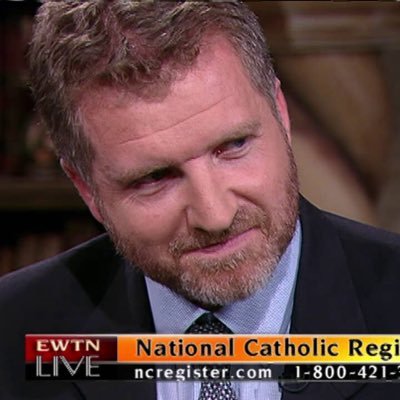
VATICAN CITY — A text is being attributed to the late Cardinal George Pell that summarizes deep concerns he and many others in Rome have had about the current crisis in the Church and the direction of this pontificate.
Last March during Lent, the veteran Italian Vaticanist Sandro Magister published the text and described it as a “memorandum” circulated to cardinal electors and pseudonymously written under the name “Demos,” the Greek name for people. Magister wrote at the time that it was written by someone who “shows himself a thorough master of the subject” and it “cannot be ruled out that he himself is a cardinal.”
Last week, Magister revealed to the Associated Press that Cardinal Pell was the author. He also told the Register Jan. 13 that “the text was handed over to me personally by Cardinal Pell” who was “very pleased that I published it, provided I did not mention the name of the author.
“And he wrote it all,” Magister said, “from the first words to the last.”
Those closest to the cardinal have downplayed the cardinal’s involvement, telling the Register that the text was the “work of many hands,” possibly as many as six or seven cardinals, but that Cardinal Pell was not the direct author. However, one source told the Register the cardinal had contacted him for advice on a draft of the memorandum.
Whether he wrote it directly or not, the memorandum is a strong rebuke of the current pontificate and has the surgical precision to match the Australian cardinal’s forthright personality. It is also peppered with his characteristic sardonic wit and ends with the ultimate hopeful goal of repairing the damage — also a keen desire of the cardinal. But more importantly, the concerns listed in the memorandum match those that the cardinal himself had shared with close associates in the year before he died and focused on those that particularly bothered him: lawlessness in the Vatican and the parlous state of Vatican finances.
What Does ‘Demos’ Say?
The author of the text begins by stating an assessment that is shared by many in, or close to, the Vatican — that this pontificate “is a disaster in many or most respects; a catastrophe.” He then goes on to recall that the task of the Successor of Peter is to be a unifier, preserve the apostolic tradition and uphold the Church’s teaching, a task that the memo asserts is not being accomplished at this time.
He adds that instead of “Roma locuta. Causa Finita est” (Rome has spoken; the cause is finished), “today it is: ‘Roma loquitur. Confusio augetur’” (Rome has spoken; confusion grows).
“Demos” then lists the times the Pope was silent in the face of evils in the Church, including in response to the current German Synodal Way that is promoting homosexuality and women priests, and what the author describes as “explicitly heretical” statements by Cardinal Jean-Claude Hollerich, the relator general of the global Synod on Synodality, rejecting the Church’s teaching on sexuality. The memorandum calls on the Congregation for the Doctrine of the Faith to formally correct Cardinal Hollerich — something Cardinal Pell also publicly urged on the same day Magister published the memorandum last March.
“The silence is emphasized,” the author adds, “when contrasted with the active persecution of the Traditionalists and contemplative convents” — a reference to severe restrictions on the Traditional Latin Mass issued in 2021, and harsh regulations imposed on women contemplative religious.
The memorandum’s author then draws attention to what many believe to be at the heart of the current ecclesial crisis: Christ no longer being at the center of the Church. “The Christo-centric legacy of St. John Paul II in faith and morals is under systemic attack,” the memorandum says, noting “confusion about the importance of a strict monotheism” and criticizing a move towards “not quite pantheism” but “a Hindu panentheism variant.”
Cardinal Pell had often expressed revulsion at the veneration of the Pachamama statues in the Vatican during the Amazon Synod of 2019. In the memo, the author states bluntly that “Pachamama is idolatrous,” but adds that “perhaps it was not intended as such initially.”
The memorandum then goes on to list eight areas where there had been “lack of respect for the law in the Vatican,” saying it had become “an international scandal.” The main focus was on the London property scandal that incurred losses of 140 million euros for the Vatican.
Cardinal Pell, who had first-hand experience of being a victim of grave legal injustice as a consequence of his imprisonment in solitary confinement for more than a year before Australia’s highest court in 2020 overturned his earlier conviction on allegations of sexually abusing two altar boys, had frequently expressed concern about the Vatican trial revolving around the London property deal to friends and associates. And despite his public differences with one of the defendants, Cardinal Angelo Becciu, he insisted the Italian cardinal should be given a fair trial and receive due process.
Cardinal Pell had also expressed concerns about phone tapping in the Vatican, of which he had had first-hand experience when he discovered bugs in his offices and residence when he was prefect of the Secretariat for the Economy. He was also vehemently opposed to the June 2017 raid on the offices of the Vatican’s former auditor general, Libero Milone, suspecting evidence had been fabricated against him and that he had been framed because he was uncovering corruption.
The Australian cardinal was also surprised by the premature termination of the first external audit of the Vatican in 2016 and always contended it was because it would uncover corruption in the Secretariat of State.
All of this is contained in the memorandum.
Moreover, the details on Vatican finances in the text can only have come from someone with an intimate knowledge of the subject and aware of how grave the situation is.
Cardinal Pell had publicly and privately shared his concerns that the Vatican was in danger of “going broke” (the memorandum similarly warns that “continuing annual deficits will eventually lead to bankruptcy”) and he was especially worried about the large deficit in the Vatican’s pension fund which he estimated to be around 800 million euros by 2030 — a figure that also appears in the text and high up on the list of concerns.
However, the memorandum says the continued need for financial reform is “much less important than the spiritual and doctrinal threats facing the Church, especially in the First World.”
It mentions other issues that were also of concern to Cardinal Pell, including the lack of public Vatican support both for Catholics in China who had been persecuted for remaining loyal to Rome, and Ukrainian Greek Catholics in view of the Russian-Ukraine War.
The memorandum calls for the situation of traditional Catholics to “be regularized,” for individual Masses to be restarted in St. Peter’s Basilica, and adds that the Pope has “little support among seminarians and young priests and wide-spread disaffection exists in the Vatican Curia.”
The author of the memorandum then turns to the next conclave, a subject the cardinal was especially concerned about as he saw it as vital to choose the right pope in order repair the damage he believed had been caused by the current pontificate.
The text notes further aspects of the current Church crisis, and again stress is placed on the Pope’s “fundamental role for unity and doctrine.”
“The new Pope must understand that the secret of Christian and Catholic vitality comes from fidelity to the teachings of Christ and Catholic practices,” the text reads. “It does not come from adapting to the world or from money.”
Cardinal Pell had often said privately that the next pope must restore doctrinal clarity — a long-held concern of his. Similarly, the memorandum states: “The first tasks of the new pope will be to restore normality, restore doctrinal clarity in faith and morals, restore a proper respect for the law and ensure that the first criterion for the nomination of bishops is acceptance of the apostolic tradition.”
The author also expresses concerns about the synods held under Pope Francis’ leadership. They threaten to be a “new danger to world-wide Church unity,” the memo asserts, warning that if “such heresy” of national or continental synods being given doctrinal authority isn’t corrected, the Church would end up “closer to an Anglican or Protestant model, than an Orthodox model.” The next pope should “remove and prevent such a threatening development,” citing “the morality of homosexual activity” as “one such flash point” that could provoke a rupture in the Church.
The author of the memorandum concludes by warning of schism but adds that most likely it will come from the right rather than the left. He also calls for a visitation of the Society of Jesus which is in “catastrophic moral decline” but argues that its charism and contribution have been so important to the Church that it must not be allowed to “pass away into history.”
Cardinal Pell’s Final Commentary
In his final commentary, published posthumously in the U.K.’s Spectator magazine Jan. 11 , Cardinal Pell also highlighted the hazards associated with the Synod on Synodality, describing the synod itself as a “toxic nightmare” from which the Church “must free itself.”
He pointed to the increasing confusion over what synods of bishops are intended to do, saying synods must decide whether they are “servants and defenders of the apostolic tradition on faith and morals,” or whether they “assert their sovereignty over Catholic teaching.”
The cardinal went on to explain the role of bishops as “successors of the apostles, the chief teacher in each diocese and the focus of local unity for their people and of universal unity around the Pope, the successor of Peter,” clarifying that they are not “wall flowers or rubber stamps” as the current synod process seems to suggest.
He recalled that in all Catholic and Orthodox synods, bishops and not the uncatechized laity have been the “main actors,” and warned that “the ex-Anglicans among us are right to identify the deepening confusion, the attack on traditional morals and the insertion into the dialogue of neo-Marxist jargon about exclusion, alienation, identity, marginalization, the voiceless, LGBTQ as well as the displacement of Christian notions of forgiveness, sin, sacrifice, healing, redemption.”
“Why the silence on the afterlife of reward or punishment, on the four last things; death and judgement, heaven and hell?” asked Cardinal Pell regarding the content of the working document released last year by the Synod on Synodality, highlighting that the synodal way has “downgraded the Transcendent.”
In this last published commentary, his last words urged that the whole people of God especially the bishop and Pope take up the task of judging the teaching of the upcoming synod’s working document. For the bishops, Cardinal Pell wrote, “there is work to be done, in God’s name, sooner rather than later.”
Taken together, both The Spectator article and the “Demos” memorandum offer a strong critique of the current pontificate but also a pathway to genuine reform rooted in Christ, clarity of doctrine, and apostolic tradition. Such were the priorities of Cardinal George Pell particularly with a view to the next conclave.

Edward Pentin began reporting on the Pope and the Vatican with Vatican Radio before moving on to become the Rome correspondent for EWTN's National Catholic Register. He has also reported on the Holy See and the Catholic Church for a number of other publications including Newsweek, Newsmax, Zenit, The Catholic Herald, and The Holy Land Review, a Franciscan publication specializing in the Church and the Middle East. Edward is the author of The Next Pope: The Leading Cardinal Candidates (Sophia Institute Press, 2020) and The Rigging of a Vatican Synod? An Investigation into Alleged Manipulation at the Extraordinary Synod on the Family (Ignatius Press, 2015).







